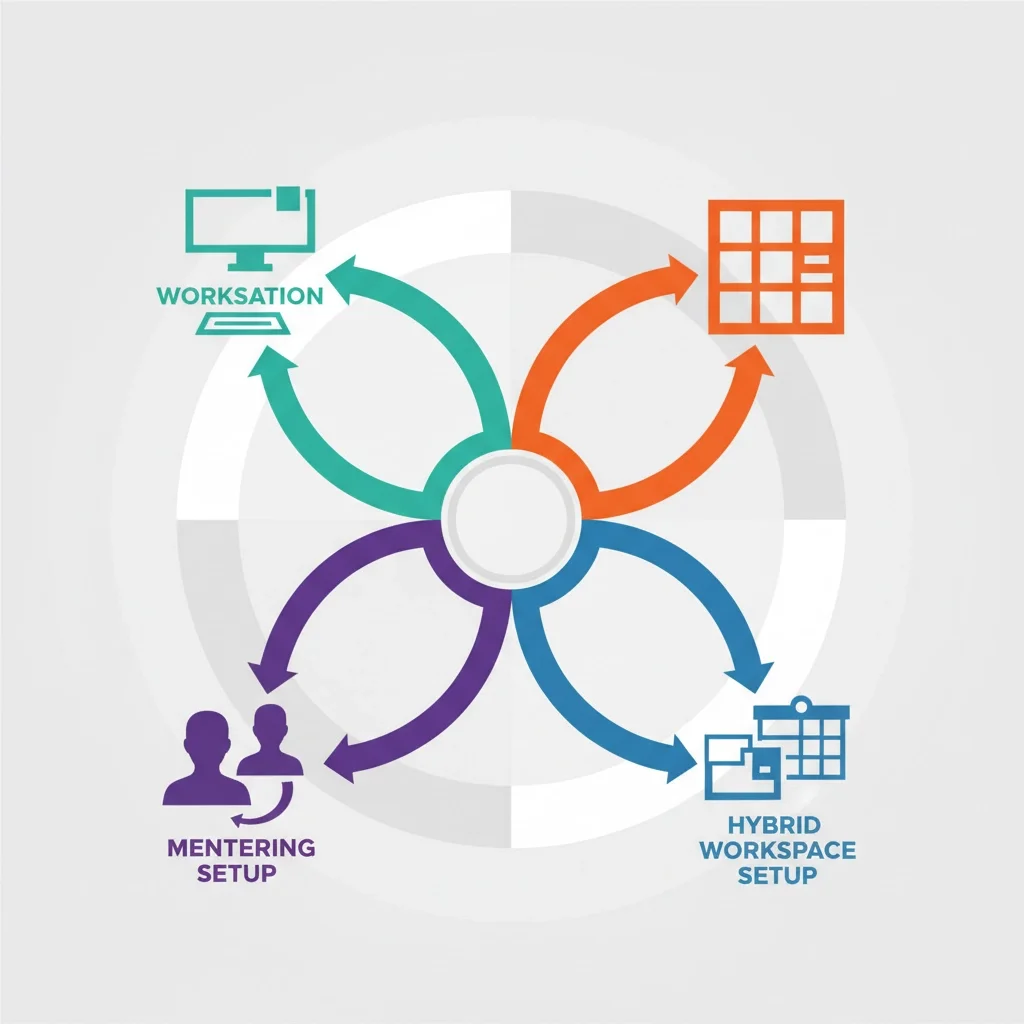Business Reality: What Happens When Promotions Don't Pan Out?
You promoted your best sales rep to sales manager. Six months later, your team is struggling, morale is down, and your star performer seems miserable in their new role. Sound familiar?
It's one of the most painful situations business owners face: when a great employee struggles in a promotion. You want to keep them, but you can't afford to pay manager-level salary for their old role. The team is suffering. Everyone's frustrated. And you're left wondering how something that seemed so logical could go so wrong.
The truth is, this scenario plays out in businesses everywhere. Let's explore what actually happens when promotions don't work out: and more importantly, what you can do about it.
Why Good Employees Sometimes Make Poor Managers
Promoting your best performer seems like a no-brainer. They know the work, they're reliable, and they've earned your trust. But management requires a completely different skill set than individual contribution.
The Skills Gap
Being excellent at a job doesn't automatically translate to being excellent at managing others who do that job. Your top salesperson might struggle with coaching underperformers. Your most reliable technician might find it difficult to delegate tasks they could complete faster themselves.
Management requires skills like:
Coaching and developing others
Having difficult conversations
Strategic planning and prioritization
Conflict resolution
Performance management
These aren't skills most people naturally possess or learn through individual performance.
The Identity Shift
Many promoted employees struggle with the shift from "doing" to "managing." They miss the hands-on work that made them successful. They feel disconnected from the results they used to directly control. This can lead to micromanagement, taking on tasks they should delegate, or feeling lost in their new role.
Recognizing When a Promotion Isn't Working
The signs are usually clear if you know what to look for:
Performance Indicators
Team productivity has declined since the promotion
Employee turnover has increased in their department
The promoted employee seems overwhelmed or disengaged
You're stepping in more often to handle issues they should manage
Team members are coming to you instead of their new manager
Behavioral Changes
Your formerly confident employee now seems uncertain
They're working longer hours but getting less done
They're avoiding difficult conversations or decisions
They seem unhappy or stressed in ways they never were before
Team Dynamics
Former peers are struggling to accept their authority
Communication has become strained within the team
Conflicts that were rare are now common
The team's morale has noticeably dropped
Just like tracking time accuracy becomes critical during tough periods, tracking these performance indicators becomes crucial when evaluating whether a promotion is working.
Get Time Tracking Clarity
Having the Difficult Conversation
When you realize a promotion isn't working, the conversation needs to happen quickly. But it doesn't have to be career-ending.
Prepare Thoughtfully
Before the conversation:
Document specific examples of struggles and successes
Consider multiple potential solutions
Think about their original role and whether it's still available
Prepare to discuss compensation honestly
Start with Empathy
Begin by acknowledging that this is a difficult situation for everyone. Something like: "I know this role has been challenging, and I want to work together to find the best path forward for you and the team."
Focus on Fit, Not Failure
Frame the conversation around role fit rather than personal failure. "It seems like this role might not be the best fit for your strengths" is very different from "you're not cut out for management."
Be Honest About the Business Impact
Don't sugarcoat the business impact, but deliver it constructively: "The team has been struggling with productivity and communication, and I think we need to make some changes to get everyone back on track."
Explore Options Together
Rather than presenting a single solution, explore options together:
Could they return to their previous role?
Is there a hybrid role that uses their strengths?
Would additional training or mentoring help?
Could they try a different type of leadership role?
Practical Options for Moving Forward
Option 1: Return to Previous Role
This is often the most obvious solution, but it comes with challenges:
Pros:
Employee returns to work they excelled at
Team gets their expertise back in the right capacity
Can improve morale if handled well
Cons:
Pay cut might be necessary and painful
Could be seen as a "demotion" publicly
Might damage their confidence
Making it work: Position it as "moving back to where you can make the biggest impact" rather than a demotion. Consider keeping some increased responsibilities or a title that reflects their experience.
Option 2: Hybrid Role
Create a role that bridges individual contribution and management:
Senior role with mentoring responsibilities
Project lead who manages initiatives but not people
Specialist who trains others but doesn't manage performance
Technical lead who guides work without administrative duties
This can preserve some of the advancement while playing to their strengths.
Option 3: Different Management Path
Sometimes the issue isn't management itself, but the specific type of management:
Move from people management to project management
Shift from operations management to client management
Try managing processes instead of people
Option 4: Extended Trial with Support
If you believe they can succeed with help:
Provide management training or coaching
Assign a mentor (internal or external)
Temporarily reduce their span of control
Give them specific development goals with timelines
Similar to how managing operational challenges requires systematic approaches, addressing promotion challenges needs structured support.
Protecting Team Morale During Transitions
When promotions don't work out, the whole team feels it. Here's how to minimize the damage:
Communicate Transparently
Don't leave the team guessing. Address the change directly: "We're making some adjustments to better align everyone's roles with their strengths and the team's needs."
Focus on Team Benefits
Help the team understand how the change will improve their work environment and productivity. Don't throw anyone under the bus, but do emphasize positive outcomes.
Address Concerns Privately
Some team members might worry about their own advancement opportunities. Have individual conversations to address these concerns and clarify what this means for future promotions.
Reinforce Your Commitment to Development
Make it clear that this doesn't mean you've stopped investing in people's growth. It means you're committed to finding the right growth path for each person.
Just like how avoiding common time tracking mistakes requires ongoing attention, maintaining team morale requires continuous communication and care.
The Compensation Challenge
This is often the trickiest part. Your employee took a promotion expecting higher pay, but now you need them in a role that typically pays less.
Creative Solutions:
Gradual pay reduction over time rather than immediate cut
Maintain higher pay temporarily while they transition back
Offer one-time retention bonus to ease the transition
Create performance bonuses tied to their original role excellence
Provide additional benefits or flexibility to offset pay difference
Be Upfront: Don't make promises you can't keep, but show you're trying to find creative ways to value their contribution appropriately.
Learning from the Experience
Every failed promotion is a learning opportunity for your business:
Improve Your Promotion Process
Include management training before promotion, not after
Create trial periods for new managers
Develop clearer job descriptions for management roles
Consider management aptitude alongside performance
Create Alternative Career Paths
Not everyone needs to manage people to advance
Develop senior individual contributor roles
Create project leadership opportunities
Offer skill-based advancement paths
Support Future Leaders Better
Provide management training for high performers
Create mentorship programs
Allow people to try leadership on small projects first
Be clearer about what management actually entails
When to Make the Call
Knowing when to act is crucial. Don't wait too long hoping things will improve on their own. Generally, if you don't see meaningful progress after:
30 days with specific feedback and support
60 days with training or coaching
90 days with reduced responsibilities
It's time to make a change. The cost to your team and business grows with each delay.
Preserving the Relationship
Remember, this person was valuable enough to promote in the first place. The goal isn't just to fix the immediate problem: it's to keep a great employee engaged and productive long-term.
Acknowledge Their Efforts
Recognize that they tried something difficult and gave it their best effort. That takes courage, and it should be acknowledged.
Focus on Their Value
Remind them (and the team) why they're valuable to the organization. Their worth isn't diminished by struggling in a management role.
Plan Their Success
Work together to create a plan for their success in whatever role comes next. Set clear expectations and provide the support they need.
Like understanding that different approaches work for different team types, different career paths work for different people: and that's okay.
Moving Forward Stronger
Failed promotions don't have to mean failed relationships. Some of the most loyal, productive employees are those who appreciate employers who handled difficult situations with grace and creativity.
The key is acting quickly, communicating honestly, and focusing on finding the right fit rather than assigning blame. Your business, your employee, and your team will be stronger for it.
Remember: promoting someone isn't just about rewarding past performance: it's about setting them up for future success. When that doesn't happen, the most successful businesses are the ones that can adapt, learn, and find creative solutions that work for everyone.
Sometimes the best promotion is the one that gets undone thoughtfully and respectfully. And sometimes that's exactly what your business and your people need to thrive.




